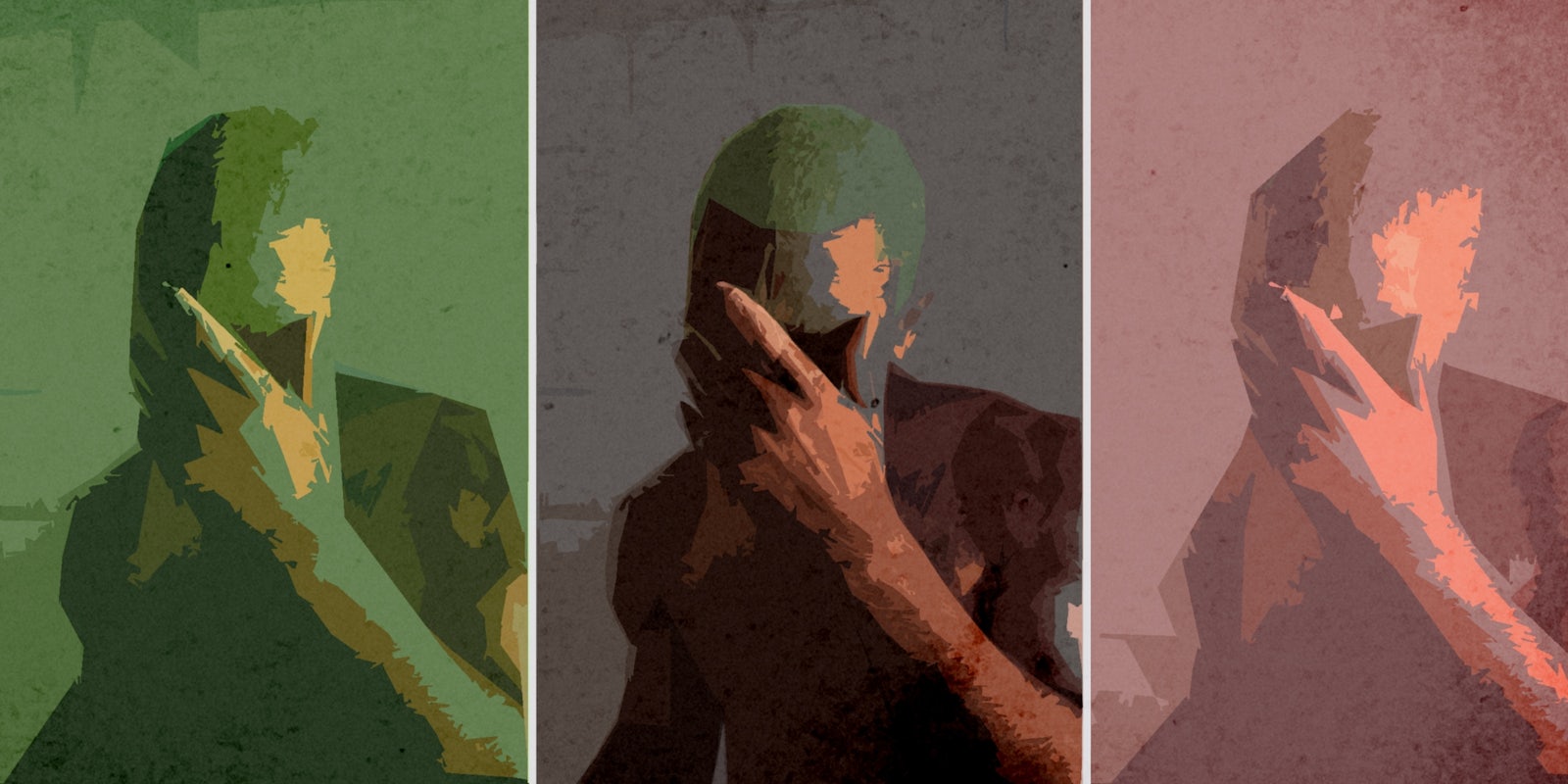After three years, several false starts, and a marketing campaign that felt like a snipe hunt, enigmatic and charmed R&B singer Frank Ocean has delivered two albums that makes it all worthwhile.
Ocean’s oft-teased album, Blonde, arrived late Saturday alongside a flurry of new media. Two visually daring music videos landed on Apple Music, while Kanye West wrote a poem about McDonald’s for its print magazine counterpart. The projects are guest-littered affairs that feature the likes of André 3000, Radiohead’s Johnny Greenwood, James Blake, and apparently, uncredited Beyoncé harmonizing.
Endless, offered as a “visual album” that played teaser for Blonde, arrived late Thursday evening. In the black-and-white video, Ocean spends 45 minutes building a wooden staircase and then climbs it. As a metaphor, it’s obvious but strikingly powerful, and the solitude of the setting reinforces the solemn, private nature of the recordings: It’s strewn together via atmospheric synths, but Endless works as a stunning, 19-song record.
Endless will almost surely exist as a playable series of individual tracks soon enough. After all, 2012’s Grammy-winning Channel Orange first appeared online as one file uploaded to Tumblr. And thanks to the Frank Ocean subreddit, there’s already a synchronized track listing. “Rushed” features emotive wailing that’s centered by its rainy-day acoustic guitar accompaniment. “Whitter” is note-perfect Stevie Wonder posturing. “Comme des garçons” gets blunt about a torrid romance: “All this drilling got the dick feeling like a power tool,” Ocean sings.
Six minutes in, the piano-soaked “Alabama” sets a thematic tone that bundles Endless and Blonde together: Nostalgia for Ocean’s crowded youth in the South, and how it informs him as a reluctant frontman grappling with the secrets of his sexuality.
Ocean is out about his attraction to men, and he’s an advocate for gay rights. But recall that for most of Channel Orange, Ocean sang R&B open to default, heterosexual interpretation. It wasn’t until the closing fifth (“Bad Religion,” “Forrest Gump”) where he presented homosexual lust and love.
When Prince died in April, Ocean took to Tumblr to blog how the legend indirectly made him comfortable with his orientation. In the video for Blonde opener “Nikes,” also beamed to Apple Music on Saturday, Ocean dons Prince-inspired androgynous garb—eyeliner, glitter, a white glove. He’s not a brash spokesman, but rather a gentle, meditative creative trying to become a star worthy of his online cult—and all of the Snapchat filters, Vine memes, and subreddits that have emerged in the long wait for Blonde. On “Good Guy,” for example, Ocean croons about a man who took him to a gay bar in New York: “You talk so much more than I do.”
Ocean began his career as a frustrated behind-the-scenes guy who wrote for Bieber and Brandy. Now he’s a cultural icon much more comfortable in the studio than performing live—somehow bringing avant-garde R&B to the mainstream—but the most profound moments of Endless and Blonde pull back the curtains.
Prince’s “When You Were Mine” is Ocean’s favorite song, he says, because of its genius simplicity. Strip away the layers of masked collaborators and cinematic flourishes, and you have “Ivy.” Nothing else lands as directly as its effortless guitar strumming and central lyric, “I thought that I was dreaming when you said you loved me.” It aches like an adolescent crush and is a universal adapter. From a man who was raised religiously in Louisiana and spent most of his life hiding, it’s a revelatory protest.
But “Ivy” ends chaotically with visceral screaming, a breakdown.
Some have wondered if Blonde was even intended for release, or if Ocean just needed to get a clean slate from all the work he’s accumulated. Both records are schizophrenic, hopping unbound from one idea to the next—a voicemail from Mom about the dangers of drugs gives way to “Solo,” which details an acid trip. But if you zoom out and look at the bigger picture, it pulls together.
If Channel Orange was Ocean finding his true personality from the glimmering Los Angeles lifestyle he washed into, Blonde and Endless are sobered-up realizations.
At his best, Ocean sings familiar (yes, that is a line from “Here, There and Everywhere” by the Beatles on “White Ferrari”) yet creatively produced melodies that pack cathartic, youthful despair. “You got a roommate, he’ll hear what we do,” he sings on “Nikes.” Its video features Ocean standing sullen in a nightclub, holding a photo of Trayvon Martin. It’s a hard-hitting mashup.
Channel Orange attempted to summon dawn in its lush keys and hip-hop drums—those optimistic and vibrant bleary mornings. Now Ocean funnels his generational anxiety about this uncertain century into hug-it-out pop. No one is doing it better.


